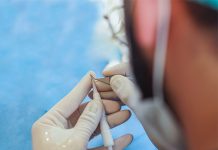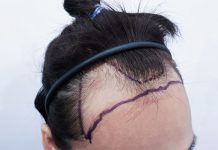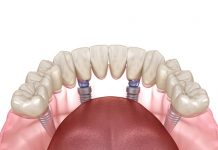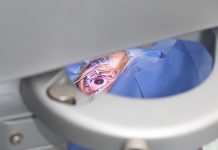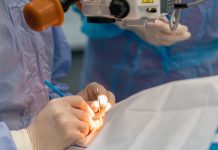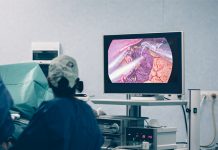Gastric Sleeve (Sleeve Gastrectomy)
Gastric Sleeve Surgery in Turkey, its average cost, Sleeve Gastrectomy Surgery and all you should know about the fastest weight-loss method are explained.
Gastric sleeve is the most common weight loss surgery operated in the United Kingdom in recent years. Because Gastric sleeve weight loss is recommended to patients who are not able to lose weight because of certain medical conditions.
Stomach Sleeve or Gastric Sleeve operation is a surgery in which a part of the stomach is removed to prevent excessive calorie intake and make the patient feel full despite consuming less food compared to a regular diet. Gastric sleeve procedure can also be referred to as Bariatric Sleeve. In the UK, Gastric Sleeve cost can be considered expensive compared to Turkey. Gastric Sleeve Turkey, or Gastric Sleeve Istanbul is preferred by many patients as they can have their endoscopic Gastric Sleeve surgery from the most experienced and famous surgeons at a lower cost compared to the UK.
Gaining weight after gastric sleeve is troubling the mind of the patients, however, they can control their weight by exercising and remaining their healthy eating habits recommended by their surgeons. Weight loss after Gastric Sleeve surgery will happen faster than a usual weight loss process thanks to Gastric Sleeve stomach. Resetting Gastric Sleeve or bariatric pouch reset a diet type that can be preferred to make the patients continue their weight loss after losing a high amount of weight.
Types of Weight Loss Surgery
Weight loss surgery has got several options in the medical world; however, three types of those surgeries are commonly operated on by surgeons. Types of weight loss surgery are:
1) Gastric Band:
During a Gastric Band surgery, a surgical band is inserted around the stomach to prevent the patient from not feeling full after consuming less food.
2) Gastric Bypass:
During a Gastric Bypass surgery, the upper part of the stomach is attached to the small intestine directly enabling consumed food to directly reach the small intestine to make the patient absorb fewer calories than usual.
3) Gastric Balloon:
In Gastric Balloon treatment, a balloon is inserted in the stomach to make patient control the amount they eat.
4) Sleeve Gastrectomy (Gastric Sleeve):
During Gastric Sleeve, a smaller part of the stomach is removed. It is the most common method used recently.
What Is Gastric Sleeve Surgery?
Gastric sleeve surgery is also referred to as Sleeve Gastrectomy, laparoscopic sleeve gastrectomy, or Partial gastrectomy. Sleeve gastrectomy is a weight loss surgery that helps patients to lose weight more efficiently and it has got long term results. It is the fastest method of weight loss and the most recent technique in bariatric surgeries. During Gastric sleeve surgery, appropriately 80% of the stomach is removed leaving a sleeve-shaped stomach. Unlike other weight surgeries, in Gastric sleeve surgery, the food eaten reaches the stomach then enters the small intestine.
The aim of making the stomach’s size smaller is to limit the food intake while making the stomach absorb fewer calories. Gastric sleeve surgery also changes how the patient’s hormones are balanced so he or she can feel fuller despite eating less food than regular. Gut hormones and GLP1 change due to the surgery both of them result in a more controlled appetite. In other words, a person with gastric sleeve surgery does not feel hungry after eating small portions and does not easily get hungry between courses.
After the surgery, it is highly significant to maintain a healthy diet is recommended portions, and give importance to vitamin intakes or injections lifetime. As a result, weight loss surgery is recommended for people who are not in a healthy medical condition plus having obesity.
Advantages and Benefits of Sleeve Gastrectomy
Gastric sleeve surgery has got various advantages and health benefits for people who have obesity both physically and mentally. Advantages of Gastric sleeve surgery are:
- Gastric sleeve surgery does not require a long hospital stay process and fast recovery is guaranteed.
- Gastric sleeve weight loss surgery does not leave big scars and it is not a painful operation.
- As the stomach size is reduced to a certain degree during a sleeve gastrectomy, the hormone ghrelin is also reduced. It is a hormone that reminds people of their hunger. In other words, as ghrelin amount decreases in the patients, it is much easier to control their appetite.
- Another advantage of gastric sleeve surgery compared to other weight loss surgery methods is that the gastric sleeve still enables sugar to digest naturally. In other bariatric surgery methods, a condition called “dumping syndrome” might occur due to sugar flowing directly into the small intestine.
- Compared to gastric band surgery, gastric Sleeve surgery needs fewer check-ups and a medical instrument is not placed into the body to remain there during the treatment. Gastric Band surgery has complications such as band erosion while gastric sleeve does not have such risk.
- Gastric sleeve surgery helps life quality to improve as a fast and effective weight loss follows the surgery.
- Sleeve gastrectomy helps many medical conditions or illnesses to reduce or heal completely if they are connected to excessive weight.
The Health Benefits of Gastric Sleeve Surgery:
- It helps Type 2 Diabetes to heal in 80% of the patients with gastric sleeve surgery.
- Patients with Hypertension (High Blood Pressure) start to take less medicine or stop being dependent on their medicine after their weight loss.
- People with a sleeve stomach report that their sleep patterns are improved after their weight loss.
- PCOS (Poly-cystic Ovarian Syndrome) is directly affected by excessive weight and PCOS can lead to infertility. Thanks to weight loss, the patients’ hormones start to work normally and side effects of PCOS start to vanish. As a result, a woman with PCOS can have a healthy pregnancy if they lose weight.
- After weight loss with gastric sleeve Surgery, the pain that an over-weight patient had reduced or disappears completely. Back pain or joint pain is a common side effect of obesity.
- Weight loss with gastric sleeve Surgery improves the mental wellbeing of people. As they have been trying to lose weight in many ways and could not succeed, gastric sleeve Surgery helps them succeed on their weight loss journey bringing a physically healthy person who can socialize without worrying about anything they used to in their previous body shape. Many patients with obesity or morbid obesity are dependent on their relatives due to their conditions in their daily routines as they can get easily tired or sort of breath. After their weight loss, they will be independent people who are full of energy.
Gastric Sleeve Surgery vs. Gastric Bypass
Gastric sleeve surgery has got many advantages compared to Gastric Bypass surgery. In Gastric Bypass surgery, the stomach is completely removed from the digesting system (only a small pouch is left) while a part of the stomach remains in gastric sleeve surgery. As a result of not removing almost the whole stomach, not enough nutrients are absorbed during the digesting process, this leads patients to be dependent on taking vitamins their whole life and they need more medical check-ups for their health. However, a sleeve stomach still helps the intestines to digest all types of food if consumed in small portions and still absorbs a certain degree of vitamins.
It is significant to note that, patients with gastric sleeve surgery still should give importance to their vitamin supplements. Another advantage of sleeve gastrectomy is that people with higher BMI (Body Mass Index) can have weight loss surgery while Gastric Bypass is not recommended for people who are too over-weight.
Despite they are two different options for weight loss surgery, they can be used together for some patients as a step of one another. For example, a person with gastric sleeve surgery can have Gastric bypass after 12 to 18 months as the second step of his or her weight loss surgery for better results. As a result, the risks of Gastric Bypass is reduced for the patient.
Gastric Sleeve Surgery vs. Gastric Balloon
A gastric sleeve operation is surgery while Gastric Balloon is somewhere between a treatment and a surgery. They are two different methods of weight loss treatments. In gastric sleeve, a part of your stomach is removed while in Gastric Balloon, a balloon-like medical item is inserted in the stomach of the patient. They both have advantages and disadvantages. For example, with a gastric sleeve stomach, you can lose a lot of weight while with Gastric balloons you cannot lose as much.
Gastric sleeve surgery is a more effective method and its effect on hormones is different than Gastric Balloon. However, it can be said that the Gastric Balloon is safer than gastric sleeve Surgery. Besides, Gastric balloons can be removed and the stomach can turn to its normal state. Gastric sleeve Surgery is permanent and shows its effects for years while you have to get your Gastric Balloon removed after 6 months. To sum up, if you do not have to lose a lot of weight, you can prefer a Gastric Balloon. However, if you have morbid obesity and have got so many pounds to lose, we would recommend Gastric sleeve surgery.
Who Are Suitable for Gastric Sleeve Weight Loss Surgery?
- Being between 18 and 65 years old,
- Having at least 35 BMI: To have gastric sleeve surgery, your BMI (Body Mass Index) should be over 35 according to the World Health Organization.
- Having certain medical conditions related to extra weight: If the patient has got diabetes, hypertension (high blood pressure), high cholesterol, PCOS, or other conditions that are affected by obesity, it is suitable for them to have gastric sleeve surgery.
- Having a previous weight-loss journey: It is significant to be a person who tried to lose weight and could not succeed or only had weight loss for a short term because if the patient can lose weight naturally, surgery is not needed.
- People who are not eligible for Gastric Bypass surgery: Due to heart or lung problems, this surgery for weight loss might not be an option for the patients. As gastric sleeve includes fewer risks, it can be preferred by the surgeon.
- Being in a suitable psychological state and having realistic expectations: Being overweight is a challenging condition both physically and mentally. Not only because of the physical expectations of social media or social life, but also the change in our hormones due to being overweight affects how our psychological well-being is. To have a big step as the decision of a weight loss surgery should not be made because of one moment of mood change, or because of what other people expect from you. You should be fully aware of the whole process and what will change in your life after the surgery.
It seems like a dream to lose weight without spending hours in the gym with too many people; however, gastric sleeve surgery will change your eating habits let alone being dependent on supplements. You should know what expects you after the surgery and decide on it knowing you will take care of yourself for your health and not gain weight after the surgery.
- If you are using medications for your psychological condition, you might not be eligible for the surgery. As the medications given for such conditions raise appetite, Gastric Sleeve or any kind of weight loss surgeries might not be successful. Your surgeon and psychiatrist will recommend what is the best for your health. Also, in some cases, you have to get an approval from your psychiatrist for the surgery. Because your Gastric Sleeve surgeon wants to make sure that you are going to be committed to the post operation period.
- If you used any caustic substances before you may not be suitable for the surgery. Those chemicals harm the stomach in a great extent and it can be risky to have the surgery. Besides, if it was an act on purpose, you cannot have the surgery because of the psychological reasons.
- Having hernia or ulcer stops you from having a Gastric Sleeve surgery. However, if you get a treatment for those such conditions first, you can still have the surgery in the future.
- Breastfeeding and being pregnant will delay your surgery. Gastric Sleeve surgery cannot be performed on such patients.
Before Sleeve Gastrectomy (Gastric Sleeve)
The surgeon you consult might want you to lose some weight before your surgery to reduce the fat in your body the thicker fat tissue is, the harder the surgery is. Losing weight before your surgery also reduces the fat around your liver. As your liver covers your stomach and the surgery is performed outside of your body, it is important to reduce the fat around your liver to have a safer and easier surgery. To sum up, it is significant to have a balanced diet with calorie control before your surgery. This will also help you to get enough nutrients before your surgery.
Before your gastric sleeve surgery, the hospital or clinic will make some medical tests on you including a blood test, heart rate, lung scans, or they might want an endoscope check to see if your stomach is healthy enough to handle the surgery and to reduce the risk of the surgery. With the blood tests, they check if you carry any diseases such as HIV, Hepatitis B or C, or if you have vitamins and iron enough in your blood. These tests are mostly done on the same day as your surgery or the day before. They will also check your weight and height to see your body mass index.
You should also get a Covid 19 test. If you had one within 48 hours, you do not have to get new one.
Procedure of Gastric Sleeve Surgery
Sleeve gastrectomy operation mostly takes between one and two hours and it is performed by a surgeon with the help of nurses.
1) Anesthesia:
Gastric sleeve surgery is operated under general anesthesia. The first step of the surgery is by applying general anesthetics to prevent the pain.
2) Creating incisions and inserting surgical instruments:
Sleeve gastrectomy is a laparoscopic surgery that is performed from outside of the abdomen with the help of a laparoscope. During this step, the surgeon creates several incisions (approximately 5 incisions) to insert surgical instruments through those incisions to perform the surgery inside the body of the patient without a cut-open process. Those surgical instruments are placed passing the abdominal cavity. The inside of the abdominal cavity is monitored on a screen using a micro camera.
3) Reducing the size of the stomach:
Using the instruments, the stomach is shaped in a smaller size that can be compared with the size of a banana. During this process, the size of the stomach is reduced up to 80% by cutting with blades supported with a laser that stops bleeding, and then the stomach is stitched to prevent leaking.
4) Removing excess stomach:
The stomach that has been cut is removed through the incisions. They are cut in small pieces to be able to fit through the cuts.
5 ) Final Stitches:
The surgeon removes the tools used during the surgery out of the incisions made over stomach skin. Then final stitches are made and bandages are applied over the scars.
It is significant to know that your surgeon might recommend an open surgery for you because of some reasons such as having thicker fat tissues on the tummy. Open surgery is operated with one large incision without using a laparoscope. The healing process of open surgery is slower than regular sleeve gastrectomy due to having a larger scar.
After Gastric Sleeve Operation
After your surgery is completed, you have to stay in the hospital for at least two nights to check if there are any serious complications. When your Gastric sleeve surgery is done, you will wear compression garments. You will also get some medication during your hospital stay such as blood-thinning medicine to prevent blood clots and pain killers to prevent the pain of the surgery. You might also be prescribed antibiotics. During your hospital stay, you will be regularly checked by the medical team.
Before you leave the hospital, you will be informed by your surgeon or nurses about what medicine you should take and how your eating habits should be during your recovery process. They will inform you about the painkillers prescribed and how often you should use them. If you have any other medicine you use because of your health condition, they might prescribe a different routine and dose for those medicines if possible. Those medicines are mostly the ones to treat high blood pressure or diabetes. In addition to the medicine you use, you will also be informed about using vitamin and mineral supplements. They might also give you a diet list prepared by a dietitian that suits your post-surgery period and your weight.
For the first six weeks after your surgery, you should give importance to your diet as it is quite significant during the healing process and for the best results. You should consume food in liquid or puree form first then start eating food in solid food over time. However, during recovery, you should forbid eating anything solid. The food portion is really important after the surgery, too. As your stomach is removed 80%, you cannot consume a lot of food. You should not forget about getting the right portion. Before you leave, the nurses will inform you about how your daily routines should be, when you can start working or start exercising, and how your exercise routine should be. Exercising is important in your weight loss journey with gastric sleeve.
When you are back at your home or hotel, we advise you to rest at least for a week or ten days before you start working because your stomach will be healing during the first 10 days after your surgery. As gastric sleeve surgery is laparoscopic surgery, the healing process is really fast. However, during that first week, you should not do any tough exercise or work that seeks muscle power. If you have heavy work, you should wait at least 3 weeks after your gastric sleeve surgery.
Significant Notes for Healing Process
- During your recovery from sleeve gastrectomy, you should prevent yourself from making any movements that might compress the abdominal wall which might damage the sutures on your stomach.
- Despite you should stop doing heavy exercise or work, you can return to your daily activities. Returning to your daily activities will reduce the possibility of some complications such as embolism. However, if your surgery was open surgery, your healing process might be different.
- You should avoid driving at least for four weeks.
- The most important step after your gastric sleeve surgery is your eating habits. Despite you will not be able to eat a lot and you will not feel hungry due to your regulated hormones, you should still try to eat healthy as possible. After your surgery, your stomach will be reduced up to 80% which means that your stomach will not absorb nutrients as much in addition to the little portions you consume. You should choose healthy options to get better nutrients from the food you intake. After 3 months, you will be able to eat most of the food you want but during the first 3 months, you should avoid food that might damage your stomach. It is better to prefer food in liquid or chew a lot before you swallow.
- You should drink enough water after your surgery. Many of us tend to neglect drinking water unless we are thirsty. However, you should drink at least 2 liters of water every day.
- You should take vitamin and mineral supplements, mainly B12 and iron.
- You should not get pregnant at least 18 months after your surgery. Most people want this surgery because they are unable to have kids related to their health condition. However, you should avoid getting pregnant until you are close to your target weight.
- After your surgery, you might have some conditions such as hair loss or thinning hair, feeling tired, feeling cold due to losing a high amount of weight during the first 6 months.
Possible Complications and Risks of Gastric Sleeve Surgery
Gastric sleeve surgery is a weight loss surgery with a lot of advantages and health benefits; however, it has got several possible risks. If the patient has got obese for years and cannot lose weight despite what they try, they should know that obesity itself is a life-threatening illness itself. As a result, many doctors recommend this surgery to people with obesity and other health conditions that obesity brings. Many people think that gastric sleeve surgery is cosmetic surgery but it is not considered cosmetic surgery. Obesity reduces people’s life quality and even reduces life span by about 10-15 years. Morbid obese people carry a higher risk already than having a sleeve gastrectomy.
Every surgery has got possible risks and those risks cannot be predictable on patients because every patient has got a unique body. For that reason, it is highly significant to know what each risk is and what can happen to you after your surgery despite there is a slight possibility of it. To reduce the risks and complications, you should follow your surgeon’s advice before and after your gastric sleeve surgery.
You should not worry too much about the risks of gastric sleeve surgery. Some patients can be afraid of death; however, this complication is quite rare and mostly caused when the patient does not follow the lifestyle gastric sleeve or other weight-loss surgeries bring. Before your surgery, you will have several medical tests to see if you are eligible for the procedure. This reduces the risks of the surgery to a certain degree.
Possible Risks of Gastric Sleeve Surgery:
- Blood clots: Blood clots are one of the common risks of surgeries in general, and after gastric sleeve surgery, the patient might have blood clots. However, the surgeon will prescribe treatments to reduce such risks. Blood clots are mostly prevented by blood-thinning medicine or leg corsets. Blood clots mostly occur on the lower legs and this condition is called deep vein thrombosis, or in the lungs which is called pulmonary embolism. If you notice pain, redness, swelling, or inflammation in your legs or pain in your chest, we advise you to contact your doctor immediately to prevent any serious complications.
- Infection of the wounds: Infection is one of the common side effects of every surgery due to the irritation the procedure leaves behind. After sleeve gastrectomy, an infection might occur on the wounds where the surgical instruments were inserted through small incisions. To prevent that, your surgeon might prescribe you antibiotics. There are some signs of a wound infection that might help you to identify your problem:
- Irritation and pain around the scarring.
- Signs of swollen skin or discoloration on the skin.
- Leaking pus from the wound.
- Leaking in the gut: During sleeve gastrectomy and Gastric Bypass operations, the stomach is cut and stitched to reduce the size. As a result, the food you consume might leak out of your stomach which ends up in an infection. If you notice pain, fever, change in breathing, and fastening of the heartbeat, you should immediately contact your surgeon because you might need another surgery to fix that complication. If your surgeon is experienced, you will reduce that risk.
- Narrowing of the stomach or small intestine: Because of the scarring and decreasing of blood in the surgical area, the small intestine or stomach might become blocked or narrowed. This complication can lead to other serious complications. If you cannot swallow easily or feel sick followed by stomach pain, you should consult your doctor. If it is found out that you have a blocked gut, you might need a small procedure to widen your gut operated with an endoscope. To reduce the risk of a blocked gut, we advise you to consume your food in small portions and chewing a lot.
- Having Gallstones: It is common to have gallstones after weight loss surgeries because of losing weight fast. A gallstone is a small hard stone that grows in the gallbladder. They are most noticeable with severe pain that suddenly occurs. You might need an operation to remove them.
- Reflux: Reflux is a condition in which the patient’s stomach acid can reach his or her mouth and it is a disease that needs treatment with certain medication. Sleeve gastrectomy can cause reflux in some patients and they might need further treatment to stop the disease as it even causes throat infections or tooth decay. If the person already has reflux, the surgeon might not want to perform a weight loss surgery.
- Malnutrition (Not consuming enough nutrients): After weight loss surgeries, the patients should give importance to taking vitamin and mineral supplements due to the fact that they will not be consuming enough nutrients through their food as a result of reducing the size of the stomach. If the patient often feels tired, has got wounds in the mouth or loses hair, or breaks nails easily, he or she might lack vitamins and minerals. To control that risk, doctors recommend patients to have regular blood tests while having a balanced diet supported with supplements.
- Extra skin on some parts of the body: Gastric sleeve surgery is one of the fastest methods of weight loss surgery and it is performed on patients who are at morbid obese degree. This means that after weight loss whether with surgery or not, the patient will have extra skin commonly on breasts, tummy, back, and limbs. To reduce the amount of extra skin, the patient can try exercising or going for walks every day. However, if you are still not pleased with the way you look because of the excess skin, you can consider skin tightening surgery called tummy tuck surgery.
- Death: Many surgeries carry death as a risk due to the complications that might occur during the procedure. Like those surgeries, gastric sleeve surgery might end up in death if serious complications occur. However, if the surgeon is experienced and the surgery takes place in a trustworthy hospital, it is a quite rare risk.
Is Gastric Sleeve Surgery Painful?
Yes. After your gastric sleeve surgery, you will feel the pain which is quite normal for such a procedure. However, during your surgery, you will not feel any pain as you are under general anesthesia. Besides, it is not an open surgery so you will not feel a lot of pain. The recovery time will be faster too. Your stomach will completely heal after 10 days. Also, the incisions on your tummy are so small that they will recover swiftly. You will be taking medicine to relieve your pain.
Is Gastric Sleeve Surgery Safe?
The success rate of gastric sleeve Surgery is high enough to say that it is a safe surgery. The success rate of surgery is that the complications seen in patients are low as well as having successful results. However, gastric sleeve surgery still has got risks and they should be considered before having one. To make your gastric sleeve surgery safer, you can choose an experienced surgeon and a decent clinic.
How Long Gastric Sleeve Surgery Takes?
Gastric sleeve surgery takes between 1 and 2 hours; however, you will stay at least 2 days in the hospital. While you are staying inward, they will check if you have any complications during and after eating.
When Can I See the Results of the Gastric Sleeve?
You can see the results of gastric sleeve even during the first month. They will be visible despite your mobility is not at its peak. You will immediately start losing weight as there is a sharp change in your eating habits and stomach. To have better and faster results, you should back up your eating habits with an exercise routine. If you follow everything your surgeon and dietitian recommends, you will have complete results fast. The average duration is between 6 months and 2 years depending on your BMI. Generally, patients lose up to 55 pounds in their first month. It can reach 100 pounds in the following months
How Much Weight Can I Lose After Gastric Sleeve Surgery?
How many pounds you will lose after sleeve gastrectomy is related to your BMI (Body Mass Index). Patients with less BMI are prone to losing less weight compared to the ones with higher BMI. Approximately, patients get in their healthy weight in 2 years. However, for some people, it can take only one year to get rid of their obesity. To have an effective result from your gastric sleeve surgery, you should not stop following your healthy habits and diet.
How Much Gastric Sleeve Surgery Costs?
The cost of gastric sleeve Surgery is on average between £7,000 and £11,000 in the UK. The average cost of gastric sleeve surgery in Turkey is approximately £4500. However, the price of sleeve gastrectomy differentiates depending on what is provided on the package. Compared to the UK, you can get the surgery done by a more experienced surgeon in Turkey while paying less. What is offered for transport, accommodation, hospital facilities and the experience of the surgeon changes the price.
Does Gastric Sleeve Cause Extra Skin?
It would be wrong to say that gastric sleeve does not cause extra skin on some of the parts of your body. Because the amount of weight you will lose after the surgery will cause extra skin. Gastric sleeve makes you lose a lot of weight in a shorter term. Compared to other weight loss methods such as exercising and a balanced diet, it brings fast results. After your surgery, you might have extra skin on your tummy, limbs, breasts, or chest. How much extra skin you will have after gastric sleeve surgery differentiates depending on several things such as:
- your age,
- how much weight you lost,
- your skin elasticity,
- and your exercise routine.
To prevent having so much extra skin, you can exercise accompanied by a personal trainer. Because you should follow an exercise program suitable for your condition. If you are still not pleased with the look you have, you can consider skin tightening surgery.
Does It Worth It to Take the Risks of Gastric Sleeve Surgery?
You decide to take the risk of surgery; however, weight loss surgery is not cosmetic surgery. It directly affects the quality of your life, your health condition, and even your life span. Gastric sleeve surgery has got some risks and we advise you to take them seriously. If you can lose weight without surgery, it is not recommended you to have weight loss surgery. However, if you have obesity and other medical conditions that come with obesity, it is worth having gastric sleeve surgery. Because it will make you have a healthier body and mind.
What Are the Alternatives to Gastric Sleeve Surgery?
Gastric balloon surgery, gastric bypass surgery, and gastric band surgery are alternatives to gastric sleeve surgery. However, gastric sleeve surgery has got more advantages compared to gastric band and gastric sleeve surgeries. If you want to learn more about gastric balloon surgery, you can read the article about the gastric balloon.
What Should I Eat After Gastric Sleeve Surgery?
After your gastric sleeve surgery, during the first ten days, you should eat only fluid or food in puree form. It is really important to avoid solid food during the first ten days. Because your stomach is in the healing process. It is vital to consume vitamin and mineral supplements while paying extra attention to getting hydrated. Drinking water is the most important part of healthy eating habits. You should prefer food rich in protein, vitamins, and minerals while reducing your fat and sugar intake. It is best to eat vegetables, fruits, and fish after your gastric sleeve surgery.



